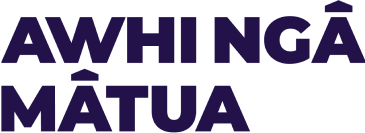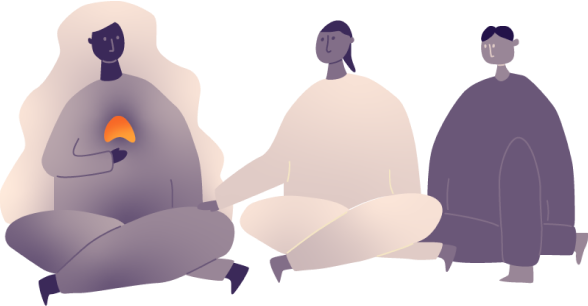Awhi is still in development, we'd love your feedback and suggestions. Let us know.
Inclusive Education - What is it?
An inclusive education is when all children, no matter their education needs, can learn and thrive and be a valued member of their local school.
It is a human rights issue and is supported by international and national law including:
- UN Convention on the Rights of the Child 1989
- UN Convention on the Rights of Persons with Disabilities 2007
- NZ Education and Training Act 2020
- NZ Disability Strategy 2016
Despite being a signatory to the above, as well as enshrining the right to an inclusive education in education policy and in law – New Zealand struggles to deliver a truly inclusive education sector for all learners.
Recent government initiatives, such as the Ministry of Education website Te Kete Iparangi, provides support and guidance on building inclusive school culture as well as embedding it in school infrastructure and practice.
While IHC supports such initiatives, it is concerned that disabled children and their families still come up against barriers when they attend their local schools. IHC has actively been seeking to redress this inequity through their Education Complaint with the Human Rights Tribunal. Find out more here.
What are some of the benefits of an inclusive education?
- Inclusive schools build communities that respect and value diversity.
- Disabled children who attend mainstream schools have better outcomes later in life – they achieve more academically, build relationship skills and have better employment prospects.
- Non-disabled children, in the same school environment, develop skills in relating to and accommodating people different to themselves and to develop ideas of equity and social justice.
- Schools build a flexible and responsive school culture and infrastructure – able to meet the needs of diverse learners.
- Families of disabled children feel that they are welcome and respected members of their community.
- Negative stereotypes about disability and difference can be eliminated through education and experience.
What are some of the difficulties schools may experience implementing inclusive education?
- There is no definitive model or checklist for what an inclusive school looks like. It will vary from school to school and may change over time. Schools need to be flexible and adaptable.
- To do it well, schools need to be fully supported - financially, legislatively and through education policy.
- It takes time and commitment to be a truly inclusive school. There may be a mismatch between a student’s support needs, and the ability for a school to build its capacity fast enough.
Key features of inclusive schools
- A willingness to not only accept all children regardless of their need for learning support, but also to commit to making that support available.
- The school infrastructure – buildings, playgrounds, amenities – are fully accessible. This includes things like fences or lifts for students that need them.
- Activities and outings are planned so that all students can take part. It is not left up to parents to organize their child’s participation at school picnics, swimming sports etc.
- Teachers, school staff, pupils respect and value diversity.
- Children can be at school for the entire school day and are not sent home subject to teacher aides being able to be present.
- Children are not forced to learn apart from their classmates but are valued members of the classroom.
So why do we have Specialist Schools?
Specialist schools exist because the availability of fully supported mainstream schools able to meet the needs of all learners across the length and breadth of New Zealand is not yet a reality.
We encourage parents to team up with their local school to get them to recognise their child’s right to an education in their local community and honouring a commitment to inclusive education. But if that simply does not seem possible or will take too long to achieve, then enrolling your child in a specialist school, may be best for you.
Parent choice in deciding where your child will thrive and learn the most, is ultimately the deciding factor. But also seek your child’s point of view as early as possible – they may surprise you by having a different perspective than your own.
For more on specialist schools, visit the Ministry of Education site.
If you would like to know more about Inclusive Education, the following articles by Awhi Nga Matua and IHC Library may be of interest to you: How can I tell if my disabled child is getting the inclusive education they deserve?; Help! My local school does not want to enrol my disabled child – what can I do?
Or contact the IHC library direct to have a chat about what you need on 0800 442 442. Alternatively, email: Librarian@ihc.org.nz.
Resources
Belonging :
Belonging :
"In Belonging: Rethinking Inclusive Practices to Support Well-Being...
"In Belonging: Rethinking...
Intellectual disabilities :
Intellectual disabilities :
This leading textbook (previously known as Learning Disabilities)...
This leading textbook...
Learning disabilities :
Learning disabilities :
"This fifth edition has been fully revised and updated and is...
"This fifth edition has...
Learning better together :
Learning better together :
"For the first time in New Zealand, "Learning Better Together" puts...
"For the first time in New...
Working with Māori children with special education needs :
Working with Māori children with special...
"Emphasises the importance of learning from the past and listening...
"Emphasises the importance...
Working with Māori Children with Special Education Needs :
Working with Māori Children with Special...
Who are Māori children with special education needs? Why would...
Who are Māori children with...
Belonging for people with profound intellectual and multiple disabilities:
Belonging for people with profound...
"This book pushes the boundaries in the way we approach people with...
"This book pushes the...
Children's rights from international educational perspectives :
Children's rights from international...
This book critically examines contemporary educational practices...
This book critically...
Inclusive education :
Inclusive education :
Examines some of the key influences behind the moves towards...
Examines some of the key...
Every child included
Every child included
Aims to track the move to creating a more flexible continuum of...
Aims to track the move to...
The journey to a more inclusive education system
The journey to a more inclusive education...
Explains what an inclusive education system looks like and the...
Explains what an inclusive...
He Whakaaro :
He Whakaaro :
New Zealand is committed to providing an inclusive education...
New Zealand is committed to...
The long and bumpy road to inclusive education
The long and bumpy road to inclusive...
"It has been 30 years since children with disabilities were given...
"It has been 30 years since...
Success in School :
Success in School :
Describes the two-day Success in School Course run by the Auckland...
Describes the two-day...
School friendships
School friendships
Looks at how the community at Pillans Point School have embraced...
Looks at how the community...
Teacher aides an integral part of learning teams
Teacher aides an integral part of learning...
Reports on research from the Education Review Office commissioned...
Reports on research from...
Unlocking the superpowers of neurodiverse learners
Unlocking the superpowers of neurodiverse...
Talks to members of a group of students who are part of the Young...
Talks to members of a group...
Te Kete Ipurangi, Inclusive Education TKI
Te Kete Ipurangi, Inclusive Education TKI
Te Kete Ipurangi – the online knowledge basket – is New Zealand’s...
Te Kete Ipurangi – the...
Inclusive Education Action Group
Inclusive Education Action Group
"The Inclusive Education Action Group (IEAG) advocates for change...
"The Inclusive Education...
Ministry of Education, Inclusive Education
Ministry of Education, Inclusive Education
Find out about inclusive education in New Zealand schools,...
Find out about inclusive...
NZ Curriculum Online, Inclusive Education
NZ Curriculum Online, Inclusive Education
Practical guidance for teachers and leaders to help recognise, plan...
Practical guidance for...
Education Review Office
Education Review Office
"Receiving a quality education, from early childhood education...
"Receiving a quality...
Being You – Roadtrip Nation
Being You – Roadtrip Nation
"1 in 5 individuals in the U.S. struggles with math, writing,...
"1 in 5 individuals in the...
All is for All
All is for All
Pieces on the lived experiences of models working for the talent...
Pieces on the lived...
NZ Down Syndrome Association
NZ Down Syndrome Association
"The New Zealand Down Syndrome Association (NZSDA) has set itself...
"The New Zealand Down...
Autism NZ
Autism NZ
"Autism New Zealand is here to provide services and support,...
"Autism New Zealand is here...
Youth Law
Youth Law
"YouthLaw Aotearoa is a free community law centre for children and...
"YouthLaw Aotearoa is a...

Resources for kids
Of course you can! =
Of course you can! =
Jeremy, a young boy who uses a wheelchair, is nervous about...
Jeremy, a young boy who...
This is me /
This is me /
Meet George and his friends! This is me. I am George. My eyes are...
Meet George and his...
My friend Sam :
My friend Sam :
Points out that autism is not easy for anyone to understand so how...
Points out that autism is...
Quinn at school :
Quinn at school :
"Early diagnosis and early intervention are both important factors...
"Early diagnosis and early...
I don't like reading /
I don't like reading /
"Meet Harry, Harry likes to play football, climb trees, and hang...
"Meet Harry, Harry likes to...
The survival guide for kids with LD* :
The survival guide for kids with LD* :
"Kids with LD can learn--they just learn differently. Young people...
"Kids with LD can...
Finding my voice.
Finding my voice.
A two-colour graphic novel about speaking-up and standing out when...
A two-colour graphic novel...
Accept and value each person /
Accept and value each person /
"The world is becoming more diverse, and so are the daily lives of...
"The world is becoming more...
You are enough :
You are enough :
"It can be hard to be different--whether because of how you look,...
"It can be hard to be...
Janine /
Janine /
"Janine is one of a kind. She focuses on the positive while...
"Janine is one of a kind....
.jpg&w=128&q=75)
Meryl Richards
I’m Meryl Richards. What a pleasure it’s been to join the Awhi team. I get to spend my days researching information that supports me as a parent, and sometimes challenges me to rethink what I thought I knew. My hope is that it will be useful to you too. I live in Kapiti with my partner and two teenage boys, and spend as much time as possible in the surrounding bush and at the beach.
Was this resource helpful to you?


The Awhi Ngā Mātua team would like to thank Takai, the IHC Foundation and the Dines Family Charitable Trust for their generous contributions to our work. A huge thank you also to the IHC Programmes team, in particular the IHC Library which has worked so hard to make their remarkable collection available to us.




.jpg&w=3840&q=75)




